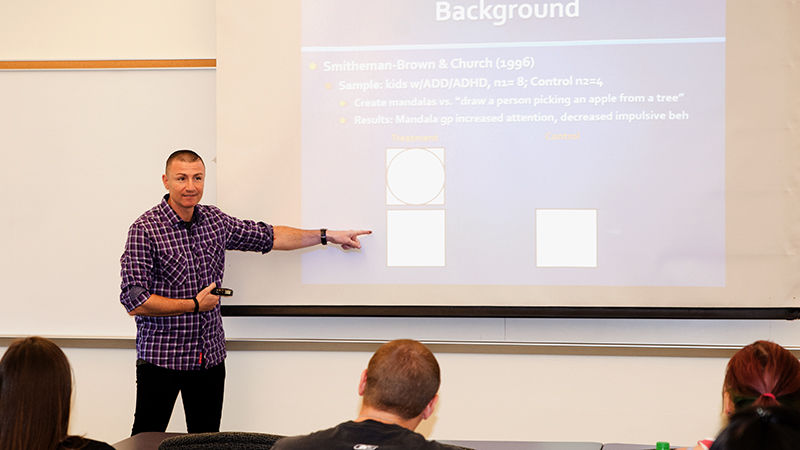Psychology Professor Delivers Research on Effects of Drawing on Stress
Dr. Aris Karagiorgakis delivered a presentation of his research project, “Measuring Blood-Glucose Levels to Distinguish between Psychological and Physiological Reductions in Stress after Drawing for 15 Minutes.”


